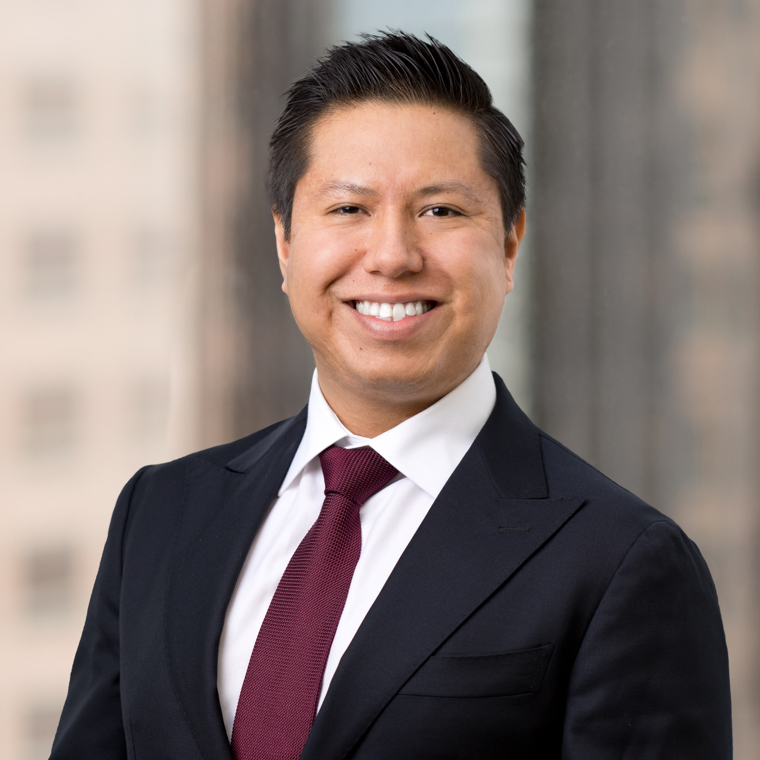Welcome to WilmerHale’s bulletin on recent trade secret case law and relevant news items. We’ve affectionately nicknamed it “Readily Ascertainable” because, unlike a trade secret, it should be easy to figure out. Each month, we squib new district court and appellate decisions that reflect the current state of trade secret law—a fast evolving practice area. If you have any questions about these cases or the legal questions they implicate, our trade secret team would be delighted to answer them.
This month’s cases involve a wide array of remedies issues—ranging from a $600 million damages award in California state court to an expansive permanent injunction ordered by the District of Delaware—as well as the statute of limitations, standing, and preemption rulings.
Insulet Corp. v. EOFlow Co., Ltd., et al., No. CV 23-11780-FDS, 2024 WL 4635197 (D. Mass. Oct. 31, 2024):
District of Massachusetts court declines to apply defendant-friendly inquiry notice standard to DTSA claim and jury awards over $450 million to plaintiff.
As covered in our 2024 Trade Secret Update, in Insulet Corp. v. EOFlow Co., Ltd. et al., No. 2024-1137 (Fed. Cir. June 17, 2024), the Federal Circuit reversed a Massachusetts district court’s decision granting Insulet Corp. a preliminary injunction against a South Korean competitor. Among other things, the Federal Circuit held that the district court had abused its discretion in not considering the statute of limitations when evaluating Insulet’s likelihood of success on the merits of its trade secret misappropriation claim.
Following remand, the district court recently ruled on the statute of limitations, diverging from decisions in other cases. As relevant here, Plaintiff Insulet and Defendant EOFlow are medical device companies that manufacture wearable insulin patch pump devices. Insulet alleges that EOFlow hired Insulet’s employees to misappropriate confidential information regarding Insulet’s Omnipod product.
EOFlow moved for summary judgment on the basis that the three-year statute of limitations barred Insulet’s DTSA claim because Insulet was on inquiry notice of EOFlow’s alleged misappropriation based on Insulet’s attendance at a conference where EOFlow displayed (and shared proprietary information about) the prototype that allegedly incorporated Insulet’s trade secrets. In contrast, Insulet argued that the statute of limitations only began to run once it actually discovered, or through reasonable diligence should have discovered, the basis for its claims.
The district court adopted Insulet’s proposed “discovery” standard based on the U.S. Supreme Court’s interpretation of a statute governing private actions for securities fraud. See Merck & Co. v. Reynolds, 559 U.S. 633 (2010). The court reasoned that Merck did not rely on any considerations special to securities law and that Congress presumably enacted DTSA with knowledge of the Merck Court’s interpretation in mind. The court acknowledged that its decision diverged from “every court to have thus far considered the issue” (including the Eighth Circuit and district courts from New York, California, Delaware, Washington, and Puerto Rico), but declined to follow those courts on the grounds that they had not addressed Merck. 2024 WL 4635197 at *9.
On December 3, 2024, a jury in the District of Massachusetts awarded Insulet $452 million after determining that EOFlow had misappropriated four of Insulet’s trade secrets: the “Computer-Aided Design files for the Omnipod,” the “design and manufacturing process for the Omnipod sof cannula,” the “occlusion detection algorithm for the Omnipod,” and the “Design History File for the Omnipod Eros.” The jury found EOFlow misappropriated a fifth asserted trade secret, but they awarded no damages after determining that the trade secret was not owned by Insulet.
Agensys, Inc. v. The Regents of The University of California, et al., No. 2:24-cv-03961, Dkt. Nos. 81 and 82 (C.D. Cal. Oct. 22, 2024):
Central District of California court finds lack of standing and denies injunctive relief.
A court in the Central District of California recently issued several decisions in a trade secret case brought by Agensys against the Regents of the University of California. Agensys is a now-defunct pharmaceutical company that focused on developing cancer treatments. It is currently a wholly-owned subsidiary of Astellas, which is not a party to the action.
Agensys alleged that it began a program to identify targets for a cancer treatment, and that an employee named Peekhaus led the research team. After Agensys ceased operations, Peekhaus began working at UCLA and allegedly used and disclosed the research he conducted at Agensys. In addition, the Regents allegedly began filing patent applications that included amino acid sequences that Peekhaus discovered through the research at Agensys.
One set of defendants moved to dismiss on the basis that Agensys lacked standing to bring a DTSA claim because Astellas, not Agensys, owns the alleged secrets. The court agreed, noting that Agensys itself had alleged that in 2017, Astellas closed Agensys and wound down its operations, that Astellas continued the research with the alleged trade secrets, and that Astellas “continued to own and maintain its interests in the alleged secrets.” Dkt. No. 81 at 3. Given the Agensys’ own allegations that Astellas owned the alleged secrets, Agensys’s general allegations of ownership were not sufficient to establish standing.
In a separate opinion granting a motion to dismiss filed by another set of defendants, the court also found that Agensys’s request for injunctive relief was improper. The court held that while the DTSA allows for injunctions to prevent “actual or threatened misappropriation,” Agensys’s requested injunctive relief would not serve to protect any secrets because Agensys had admitted that the alleged secrets have been published in patent applications. Dkt. No. 82 at 9.
Move, Inc., et al. v. CoStar Group, Inc., et al., No. 2:24-cv-05607, Dkt. Nos. 113, 115 (C.D. Cal. Oct. 29, 2024):
Central District of California court holds that California trade secret law does not necessarily preempt claim for violation of California’s Comprehensive Computer Data Access and Fraud Act.
In this ongoing trade secret dispute, defendants moved to dismiss plaintiffs’ claims for violation of the Computer Fraud and Abuse Act, 18 U.S.C. § 1030 (“CFAA”), and violation of the Comprehensive Computer Data Access and Fraud Act, Cal. Pen. Code § 502 (“CCDAFA”).
Among other things, defendants argued that California’s Uniform Trade Secrets Act (“CUTSA”) preempted the CCDAFA claim. In reviewing the case law, the district court concluded that “one particular principle stands out to the Court at this stage: ‘[CUTSA] does not displace … claims when they are not based on an alleged misappropriation of a trade secret.’” Dkt. No. 113 at 3. Based on that principle, the court held that plaintiffs' allegations suggested that “more than just trade secrets are at issue,” particularly plaintiffs’ allegation that defendant “systematically invaded Move’s secure computer systems, secretly exfiltrated Move’s trade secrets, and spied on Move’s real-time confidential electronic documents.” Id. at 4. The court went on to hold that “to the extent Plaintiffs’ CCDAFA claim is based on trade secrets, or materials that Plaintiffs assert constitute trade secrets, Plaintiffs may very well have a preemption problem. But it is not a problem that can dispose of their entire CCDAFA claim at the pleadings stage.” Id.
Beijing Meishe Network Tech. Co., Ltd. v. Tiktok Inc., et al., No. 23-CV-06012-SI, 2024 WL 4627049 (N.D. Cal. Oct. 8, 2024):
Northern District of California court holds that a trade secret defendant cannot file a standalone counterclaim for attorney’s fees.
Beijing Meishe Technology Co. sued TikTok for misappropriation of trade secret source code under the DTSA and the Texas’s equivalent trade secret statute. In response, TikTok asserted, inter alia, a counterclaim for attorney’s fees on the grounds that Meishe had purportedly filed the litigation in bad faith.
The court noted that whether a defendant can bring a standalone counterclaim for attorney’s fees appeared to be an open question, as neither side had identified relevant precedent from any federal appellate court and the cited district court cases were split. Ultimately, the court sided with what “appears” to be the majority of district courts that have held that a defendant cannot seek attorney’s fees until there is a determination on the merits of the underlying trade secret claim. 2024 WL 4627049 at *2.
The court reasoned that the DTSA does not clearly create a standalone claim for fees, but instead “cabins attorney’s fees as a remedy for the prevailing party.” 2024 WL 4627049, at *3. The court also concluded that this reading of the DTSA was consistent with Federal Rule of Civil Procedure 54(d), which “requires claims for attorney’s fees to ‘be made by motion unless the substantive law requires those fees to be proved at trial as an element of damages.’” Id. Because the DTSA does not treat fees as an element of damages, the court concluded that FRCP 54(d) indicated attorney’s fees could only be sought via motion. The district court reached the same conclusion for the similarly–phrased Texas state law, concluding that it does not permit a counterclaim for attorney’s fees for essentially the same reasons as the DTSA does not.
Qorvo Inc. v. Akoustis Technologies Inc. et al., No. 1:21-cv-01417, Dkt. No. 709 (D. Del. Oct. 11, 2024):
Permanent injunction granted requiring purge of trade secret information.
In May 2024, a jury in the District of Delaware found Akoustis Technologies Inc. liable for trade secret misappropriation under the DTSA and North Carolina law. The jury awarded over $31 million in unjust enrichment damages and $7 million in punitive damages. The court also held that Qorvo Inc. was entitled to a permanent injunction requiring Akoustis to delete all misappropriated trade secrets from Akoustis’ systems.
Applying the four-factor eBay standard, the court first found that Qorvo would suffer irreparable harm absent an injunction because Qorvo’s trade secrets were so enmeshed in Akoustis’ “processes, documents, and products” that it was likely that “Qorvo’s trade secrets will remain in Akoustis documents, and will remain incorporated into Akoustis products, given the breadth of misappropriation” unless Akoustis took affirmative steps to delete all documents that incorporated or referenced the trade secrets. Dkt. 709 at 5-6.
Under the second eBay factor (adequacy of monetary remedies), the court rejected Akoustis’ argument that over $31 million in compensatory damages and $7 million in punitive damages was adequate to compensate Qorvo for the trade secret misappropriation. The court reasoned that “[c]ompensation disgorging Akoustis’ ill-gotten past gains does not adequately compensate Qorvo for the future use or proliferation of their trade secrets.” Dkt. 709 at 7.
Under the third and fourth eBay factors (balance of hardships and public interest), the court found that the balance of hardships favored granting a permanent injunction because there was “‘no cognizable hardship’ in prohibiting a defendant from engaging in continued wrongdoing.” Dkt. 709 at 7.
Propel Fuels Inc. v. Phillips 66 Co., No. 22CV007197 (Cal. Super. Ct. Oct 16, 2024):
California jury awards $604.9 million in damages for trade secret misappropriation.
Propel Fuels Inc., a retailer of low-carbon fuels, sued Phillips 66 after a failed acquisition. Propel had alleged that it had given Phillips access to confidential information as part of a potential acquisition agreement (including a proprietary algorithm related to determining optimal locations for renewable fuel locations), and that Phillips abandoned the acquisition after obtaining this information. Notably, during the trial, the jury was permitted to ask a question of a Phillips executive. In closing argument, Propel’s counsel argued that the executive’s answer amounted to a confession of misappropriation. The jury subsequently found that Phillips willfully misappropriated 77 of the 88 alleged secrets and awarded Propel $604.9 million in damages. It is possible that this case will raise questions as to apportionment of damages given that the jury did not find liability as to all alleged trade secrets, and the verdict form asked a single question: “What is the amount of Phillips 66’s unjust enrichment?”






